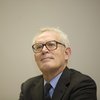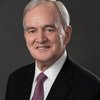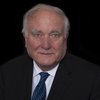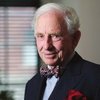How Should Central Bank Conflicts Be Managed?
Webinar - USA, UK
Never miss a recording again; click here subscribe to Z/Yen's YouTube account .
Technology has introduced objective stable ways to tether the value of money to remove a reason for Central Banks to exist to maintain a stable currency. The Bank of England has neglected, or recently unconsciously suppressed, the idea of a monetary tether. No mention of a tether was raised in the discussion paper issued by the Bank on March 12th, 2020, when it invited the public to make submissions on: “Central Bank Digital Currencies Opportunities, challenges and design”.
The need for a monetary tether was identified by The Economist newspaper when it introduced its “Big Mac Index” in 1986 and announced the need “to tether currencies” on its cover in January 1990. Its cover story on 23 April 2022 was “The Fed that failed”.
In 1999, Deputy Governor Mervyn King recognised the possibility of not having a Central Bank with the following statements: “Will future historians look back on central banks as a phenomenon largely of the twentieth century? Electronic transactions in real time hold out that possibility. There is no reason, in principle, why final settlements could not be carried out by the private sector without the need for clearing through the central bank. Financial assets and real goods and services would be priced in terms of a unit of account. The choice of a unit of account (perhaps a commodity standard, which would produce broad stability in the price level) would be a matter for public choice and regulation, along the lines of existing weights and measures inspectors”. The successors to Bill Gates would have put the successors to Alan Greenspan out of business.
Governor Mark Carney discussed in 2019 the advantages of having a tether that he envisaged as a “Synthetic Hegemonic Currency (SHC)”. Other suggestions have been made for a tether that could also complement and/or replace carbon taxing and/or trading.
Speakers:
Professor Charles Goodhart was appointed to the Norman Sosnow Chair of Banking and Finance at the London School of Economics (LSE) in 1985, until his retirement in 2002 when he became Emeritus Professor of Banking and Finance. He was elected a Fellow of the British Academy in 1990, and awarded the CBE in 1997, for services to monetary economics. During 1986, he helped to found the Financial Markets Group at LSE. For the previous 17 years he served as a monetary economist at the Bank of England, becoming a Chief Adviser in 1980. Following his advice on overcoming the financial crisis in Hong Kong in 1983, he subsequently served on the HK Exchange Fund Advisory Committee until 1997. Later in 1997 he was appointed for three years, until May 2000, one of the four independent outside members of the newly-formed Bank of England Monetary Policy Committee. He became an economic consultant to Morgan Stanley in 2009, until he resigned, at the age of 80, in 2016. It was during this period that he began work on the subject matter of his recent book, The Great Demographic Reversal(Palgrave Macmillan), with his colleague there, Manoj Pradhan. He was written widely on matters relating to monetary policy, especially central banking, and macro-economics. Charles is the author of Goodhart's Law "that any observed statistical regularity will tend to collapse once pressure is placed upon it for control purposes.”
Professor Willem Buiter is an independent economic advisor and speaker. He is Adjunct Professor of International and Public Affairs at Columbia University, Adjunct Senior Fellow at the Council on Foreign Relations and a member of the Advisory Scientific Committee of the European Systemic Risk Board. He was Global Chief Economist at Citigroup from 2010 to 2018 and a Special Economic Advisor at Citigroup from 2018 to 2019. Previously, he was Chief Economist and Special Counselor to the President of the European Bank for Reconstruction and Development and a member of the Monetary Policy Committee of the Bank of England. He was the Juan T Trippe Professor of International Economics at Yale University and has also held academic appointments at the London School of Economics, Cambridge University, the University of Bristol, and Princeton University. He is the author of 78 refereed articles in professional journals and seven books.
Dr Andrew Hilton OBE is a financial and economic commentator and consultant, based in London. In 1993, he co-founded the Centre for the Study of Financial Innovation (CSFI), a non-profit think-tank supported by up to 70 City institutions (including the BofE and the Treasury), and was its Director until March 2021. During that time, the CSFI held over three thousand events, published well over one hundred reports as well as a regular journal, and produced over 400 videos, establishing itself as an international thought-leader in the fields of financial services and macroeconomics. He has worked for the World Bank in Washington and was editor-in-chief of a New York-based financial advisory service owned by the Financial Times . He has written books on LDC debt and edited a UN work on free-trade zones. He is a board member of the Observatoire de la finance in Geneva. He has a PhD from the University of Pennsylvania, an MBA from Wharton and an MA from New College, Oxford. He was appointed OBE in 2006.
Dr Shann Turnbull published The Management of Capital in 1965 to promote modern financial analysis in Australia. He became a part time teacher at Australia’s first business schools while being a serial entrepreneur founding many enterprises with three becoming traded on the Australian stock exchange. From 1967 to 1974 he was in charge of research for a private equity group that acquired and re-organized a eight publicly traded companies. In 1970 he also became a founding joint CEO/owner of a public mutual fund management company. In 2001 he obtained a PhD from Macquarie University with a thesis that showed how the science of control and communication in the animal and the machine described as cybernetics could be extended to organizations to create a science of governance using bytes as the unit of analysis. His thesis built upon his education as an electrical engineer in Tasmania in 1957 and a BSc from the University of Melbourne in 1960. His PhD thesis, many journal articles, book chapters and books are posted here.
Chairman:
Professor Michael Mainelli FCCA FCSI(Hon) FBCS, Executive Chairman, Z/Yen Group, is a qualified accountant, securities professional, computer specialist, and management consultant, educated at Harvard University and Trinity College Dublin. Michael gained his PhD at the London School of Economics where he was also a Visiting Professor of Innovation & IT. Michael is Emeritus Professor, Fellow, & Trustee at Gresham College where he created the Long Finance initiative asking “when would we know our financial system is working?” His third book, The Price Of Fish: A New Approach To Wicked Economics And Better Decisions, won the Independent Publisher Book Awards Finance, Investment & Economics Gold Prize. Michael is an Alderman and was elected Sheriff of the City of London 2019-2021.
Date
Thursday, 07 July 2022
Time
15:00 - 16:00 BST
Cost
Free

Share this event on social media:
Speaker(s):
-
 Professor Charles Goodhart
Professor Charles Goodhart
Emeritus Professor
London School of Economics
-
 Professor Willem Buiter
Professor Willem Buiter
Independent
Economic Advisor
-
 Dr Andrew Hilton
Dr Andrew Hilton
Visiting Professor
The London Institute of Banking and Finance
-
 Dr Shann Turnbull
Dr Shann Turnbull
Principal
International Institute for Self-governance
Chairman:
-
 Professor Michael Mainelli
Professor Michael Mainelli
Executive Chairman
Z/Yen Group
